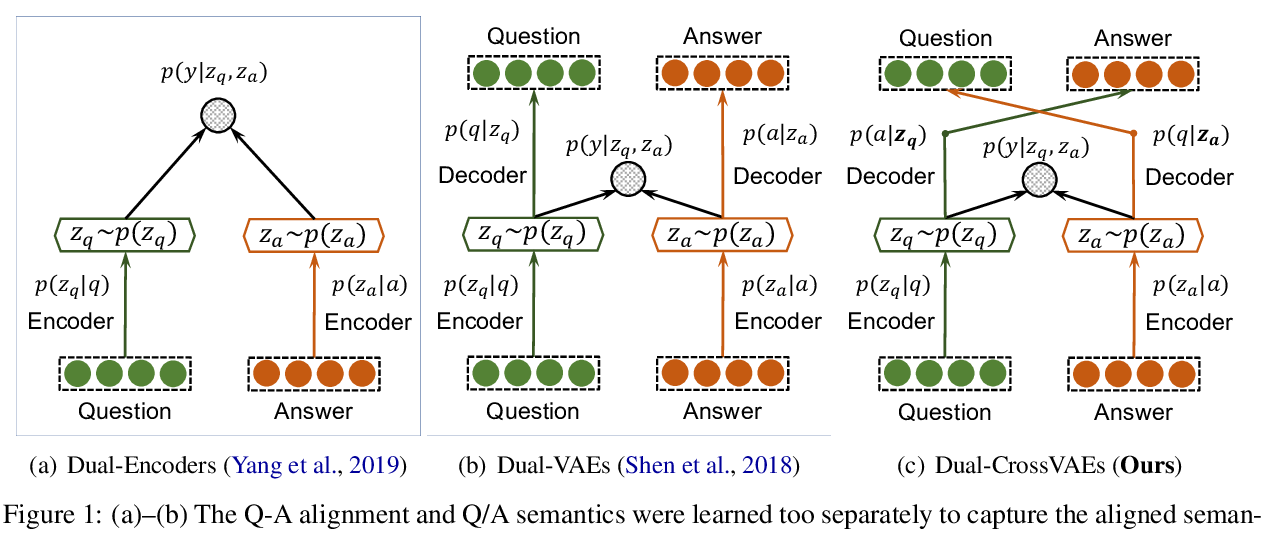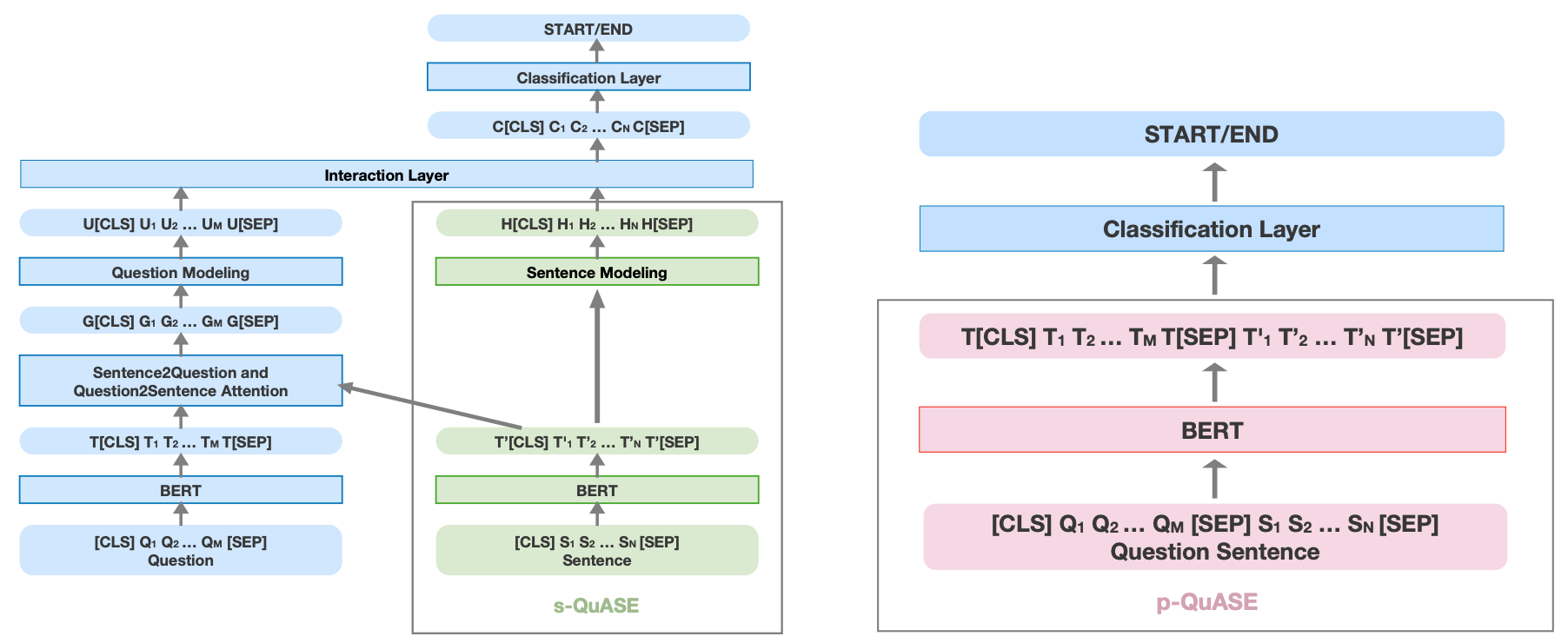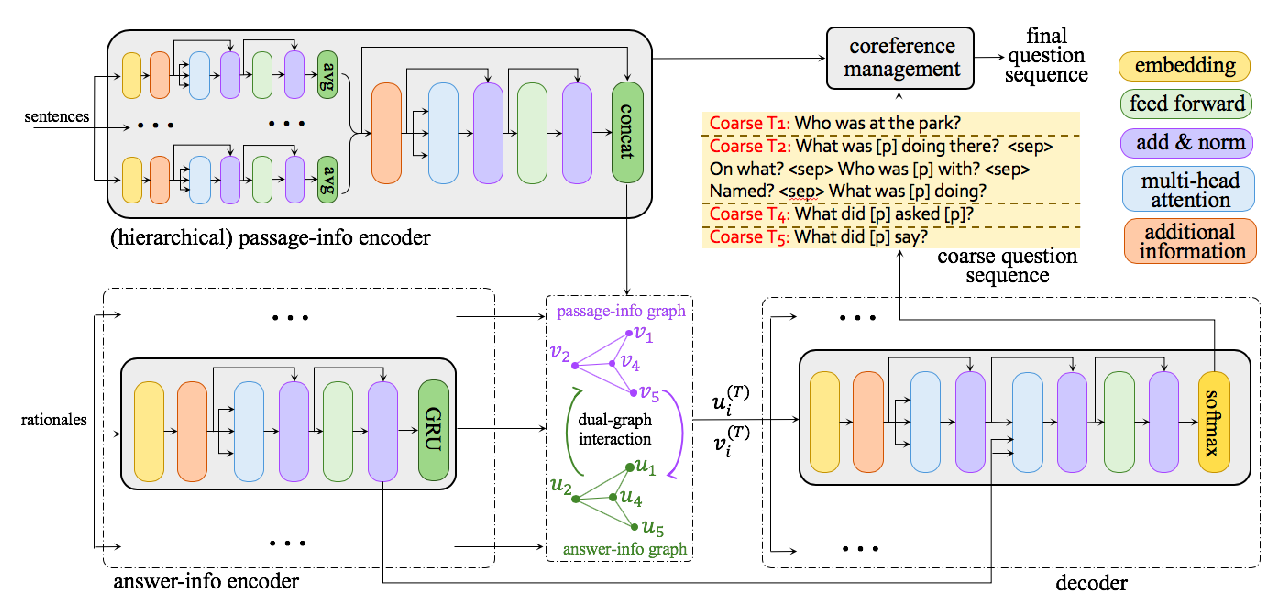Learning to Identify Follow-Up Questions in Conversational Question Answering
Souvik Kundu, Qian Lin, Hwee Tou Ng
Question Answering Long Paper
Session 1B: Jul 6
(06:00-07:00 GMT)

Session 2A: Jul 6
(08:00-09:00 GMT)

Abstract:
Despite recent progress in conversational question answering, most prior work does not focus on follow-up questions. Practical conversational question answering systems often receive follow-up questions in an ongoing conversation, and it is crucial for a system to be able to determine whether a question is a follow-up question of the current conversation, for more effective answer finding subsequently. In this paper, we introduce a new follow-up question identification task. We propose a three-way attentive pooling network that determines the suitability of a follow-up question by capturing pair-wise interactions between the associated passage, the conversation history, and a candidate follow-up question. It enables the model to capture topic continuity and topic shift while scoring a particular candidate follow-up question. Experiments show that our proposed three-way attentive pooling network outperforms all baseline systems by significant margins.
You can open the
pre-recorded video
in a separate window.
NOTE: The SlidesLive video may display a random order of the authors.
The correct author list is shown at the top of this webpage.
Similar Papers
Crossing Variational Autoencoders for Answer Retrieval
Wenhao Yu, Lingfei Wu, Qingkai Zeng, Shu Tao, Yu Deng, Meng Jiang,

Exploring the Role of Context to Distinguish Rhetorical and Information-Seeking Questions
Yuan Zhuang, Ellen Riloff,


